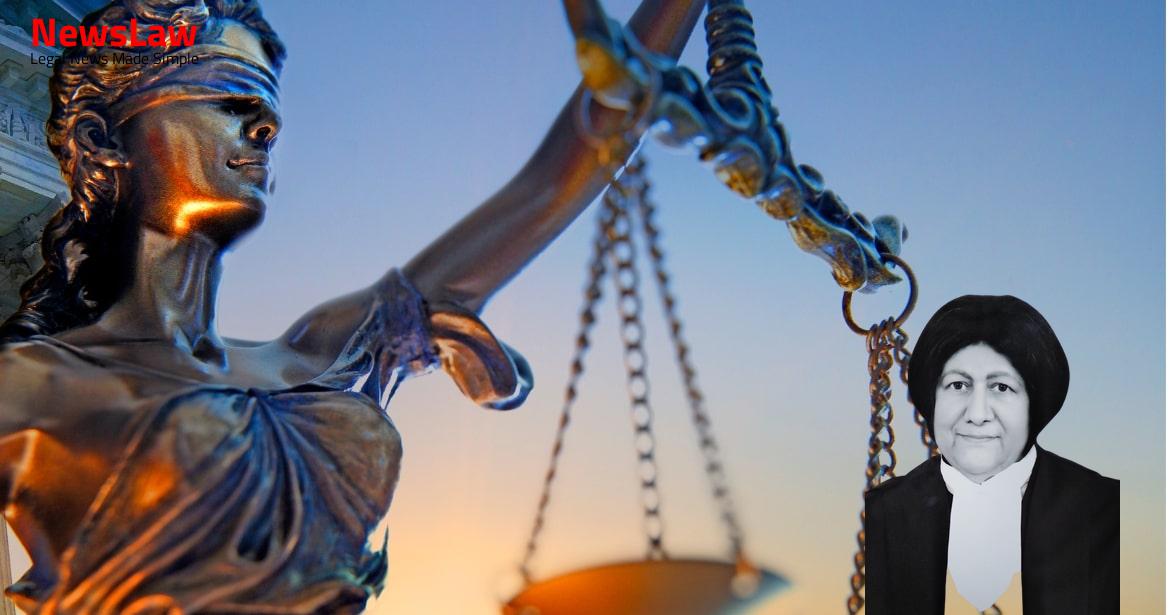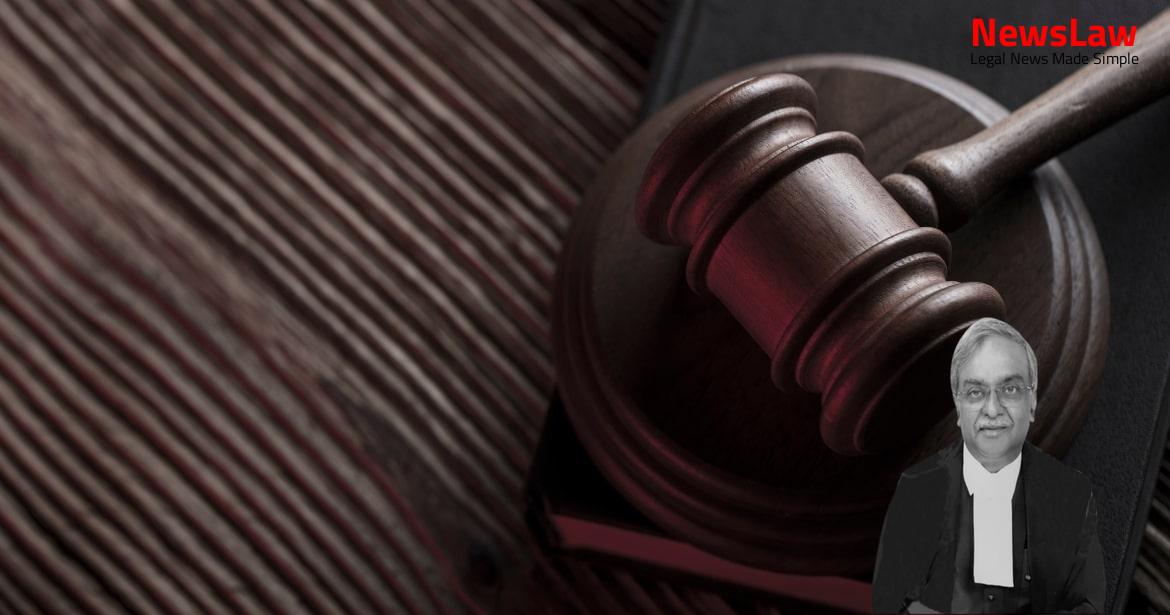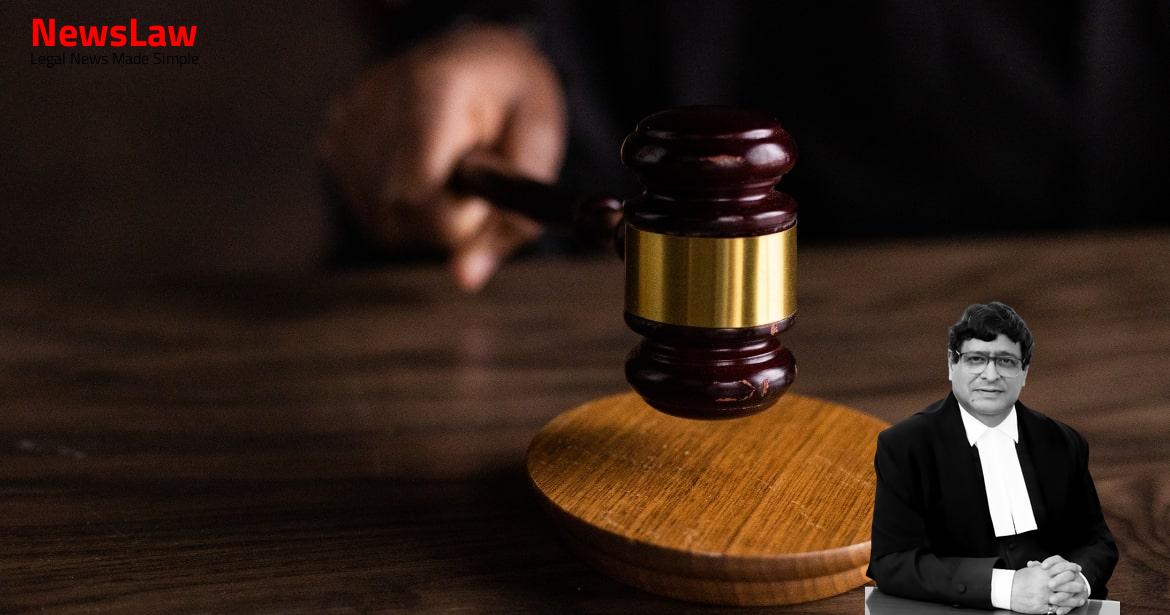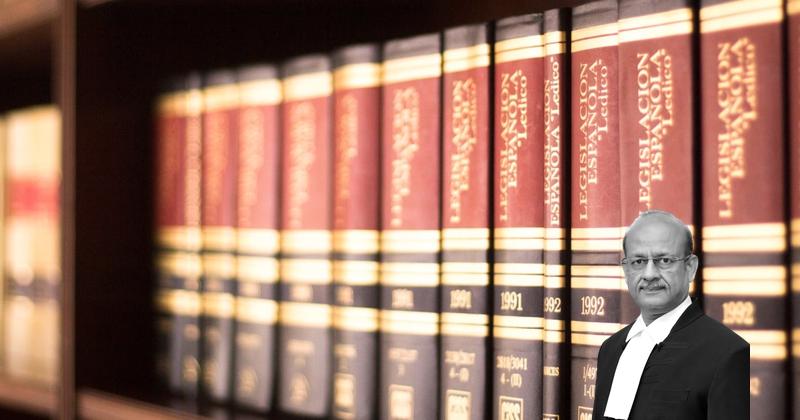In a recent legal case, the court delved into the intricate balance between bail conditions and personal rights. The court’s analysis focused on the necessity of fair and pertinent conditions, emphasizing the importance of not impeding personal liberties while ensuring justice is served. Follow along to learn more about the court’s insightful approach to navigating these complex legal waters.
Facts
- The Sessions Court at Thane granted anticipatory bail to co-accused Arun Fatehpuria based on the documentary nature of the evidence, making custodial interrogation unnecessary.
- The High Court declined to modify its order to allow the appellant to travel to the US for eight weeks.
- The appellant was granted temporary bail by the High Court on 19 May 2020 with specific conditions.
- The conditions included furnishing a PR Bond and surrendering the Passport and/or Green Card.
- The High Court refused to relax the conditions due to an FIR being registered against the appellant.
- A Single Judge expressed inability to consider relaxing the conditions as the initial order was passed by another Judge.
- Appellant sought leave of the High Court to visit the US due to Green Card requirements.
- Appellant filed an application for bail in March 2020, which was rejected in May 2020.
- IA filed before High Court on June 10, 2020, seeking permission to visit the US for 8 weeks.
- Fresh praecipes for urgent listing filed on June 17 and 19, 2020.
- Allegation of forging Power of Attorney in 2011 from brother Shalin in January 2014.
- Registry of High Court informed appellant on June 15, 2020, no urgency found in the praecipe.
- Appellant needed to arrive in the US by July 29, 2020, to retain Green Card status.
- Appellant filed application for bail before High Court on April 23, 2020.
- Appellant arrested on February 21, 2020, at Mumbai airport due to a look-out notice from FIR in April 2014.
- No view expressed on the merits of the matter as interim application is still pending before the High Court.
Also Read: Analysis of High Courts’ Jurisdiction and Court Orders Under Article 142
Issue
- The issue at hand is whether the appellant should be allowed to travel to the US for a duration of eight weeks.
Also Read: Electoral Malpractices in Mayor Election
Arguments
- The appellant has been a resident of the US since 1985 and holds a Green Card since 2010.
- The appellant and his family have been involved in ongoing litigation against the complainant, both civil and criminal.
- The appellant has visited India on sixteen occasions between 2015 and 2020.
- The appellant’s family jointly owns properties worth over Rs 100 crores in Thane and Panvel, and he is the sole member handling the litigation.
- The appellant has not violated any US laws and risks serious consequences for his Green Card if unable to travel.
- The appellant argues that conditions for bail should not arbitrarily limit his right to livelihood.
- The appellant claims that the JMFC’s order in 2014 was routine and has been misused by the police to harass him.
- Mr. Sachin Patil mentioned that the appellant was given temporary bail for eight weeks by the High Court on 19 May 2020.
- It was stated that the appellant did not provide surety or surrender after the eight-week period had lapsed.
Also Read: Balancing Power and Transparency: Electoral Bonds Struck Down, Disclosure Mandated
Analysis
- Appellant seeks permission to travel to the US for eight weeks to revalidate his Green Card.
- Lockdown due to Covid-19 resulted in High Court extending interim orders preventing appellant’s surrender.
- Appellant demonstrated bona fides by moving High Court for early hearing and modification of conditions.
- No justification to deny appellant travel permission based on previous record and character.
- Impugned conditions have no nexus with good administration of justice and trial advancement.
- The right to dignity and constitutional safeguards should not be jeopardized by disproportionate conditions.
- Appellant, an Indian citizen, has maintained close contact with India and regularly traveled between US and India.
- Court exceeded its jurisdiction by imposing arbitrary and onerous conditions.
- Conditions for bail must balance public interest in criminal justice enforcement with rights of the accused.
- FIR against appellant should not bar him from US travel, especially critical for Green Card validation.
- Court’s discretion in imposing bail conditions should prioritize facilitating justice administration and accused’s presence without impeding liberty or investigation.
- A First Information Report was registered against the appellant on 22 April 2014 for various offences under the Indian Penal Code.
- The appellant and a co-accused had sought anticipatory bail which was granted by the Sessions Court Thane.
- The High Court incorrectly rejected an application for modification of travel restrictions for the appellant.
- A JMFC ordered an investigation under Section 156(3) of the Cr.P.C. based on a private complaint.
- An alien lawfully admitted for permanent residence in the United States is not considered as seeking admission unless certain conditions are met.
- Conditions include abandonment of status, absence from the US for over 180 days, engagement in illegal activity after leaving the US, departure under legal process seeking removal, committing specific offenses, etc.
- The High Court rejected the application for relaxing conditions for interim bail, leading the appellant to approach the Court.
- The Court requested the High Court to consider the appellant’s application to travel to the US at an early date.
- Conditions imposed on the grant of bail under Section 438 of the CrPC must be fair and pertinent to the investigation or trial.
- The court is obligated to strike a balance between personal freedom and police investigation rights when granting bail under Section 438.
- Conditions must aim to prevent interference with the investigation process.
- The court’s discretion in imposing conditions on bail must be exercised with restraint and reason.
- The right to travel abroad is considered an essential aspect of personal liberty.
- Restrictions on the accused’s right to travel must be justifiable and in the interest of justice.
- Various cases have allowed accused individuals on bail to travel abroad for valid reasons.
- Onerous and arbitrary bail conditions are deemed incompatible with the law.
- The trial court may monitor the relationship between parties in cases involving domestic disputes upon granting bail.
Decision
- The appellant’s passport will be handed over to him for travel purposes but must be deposited with the investigating officer upon his return.
- The High Court’s order from 23 July 2020 is set aside, and the appeal is disposed of based on the given directions.
- If the appellant needs to travel to the US upon his return after eight weeks, he must seek permission from the relevant court for travel, with each application considered on its merits.
- The appellant can travel only after receiving permission and complying with the imposed terms.
- Before traveling, the appellant must submit an undertaking to the court, assuring his return to India after eight weeks and availability for all criminal court hearings unless exempted from personal appearance.
Case Title: PARVEZ NOORDIN LOKHANDWALLA Vs. STATE OF MAHARASHTRA (2020 INSC 573)
Case Number: Crl.A. No.-000648-000648 / 2020



